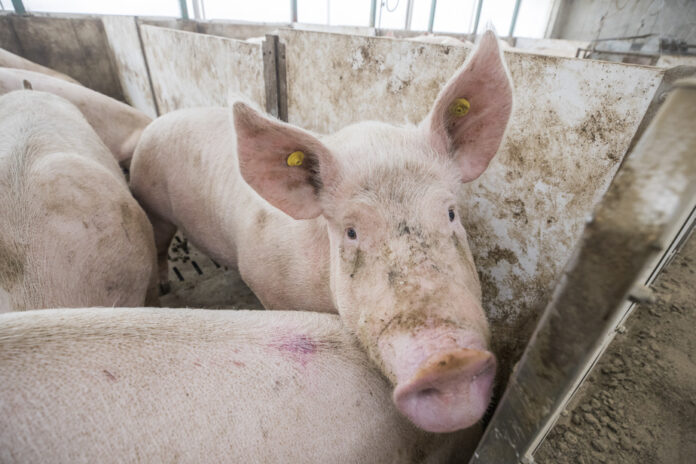The Minister of Agriculture, Fisheries and Food of Quebec, André Lamontagne, summoned all the players in the pork sector on Tuesday to emphasize that time is running out to achieve a reduction in the herd of 1.1 million animals. by January 2024.
Leaders of the Union of Agricultural Producers (UPA), Pork Breeders, Financière agricole and the Ministry of Agriculture, Fisheries and Food of Quebec (MAPAQ) met at his request in the UPA premises in Longueuil.
“What was important, and that’s why I called this meeting, is that everyone understands that there is a sense of urgency, a sense of urgency in the sense that there is a calendar. And there, at some point, we must not get caught by the calendar, “he said in an interview with La Presse after the meeting.
On March 27, the agricultural union Les Eleveurs de porcs voted in favor of setting up a buy-back program for farmers who wish to withdraw from production for at least five years. With a compensation fund of 80 million, it aims to respond to a reduction in the volume of slaughter requested by processors, who are experiencing financial difficulties. Quebec produces approximately 6.8 million hogs annually.
The Régie des Marchés Agricoles et Alimentaires du Québec – an administrative tribunal – will however have to give its approval for the production withdrawal mechanism to be put in place.
However, nearly a month and a half later, the withdrawal plan has still not been submitted to the Régie. “It will be done shortly,” said the minister, who said he was satisfied with the meeting.
“I wanted to see how in tune and mobilized people were to land this in the right place. »
The voluntary production withdrawal mechanism will be funded by a special contribution that will amount to an average of $2.85 for each animal marketed by producers who decide to continue their activities.
A significant part of the 80 million fund, however, is likely to be paid for by taxpayers.
Les Éleveurs de porcs du Québec would like producers to be able to include the amount of the special assessment in their “marketing” costs.
The contribution will then be reimbursed to them by the Farm Income Stabilization Insurance Program (ASRA). Managed by the Financière agricole du Québec, ASRA is two-thirds funded by Quebec taxpayers.
Is this the right vehicle to support producers? Could the Minister provide direct support to producers?
More generally, the Minister called for the plan to be fair to all types of businesses, not to the detriment of future farmers and to recognize the investments made in productivity.
“Beyond a reduction in production, we want the sector to be stronger than it is today. And that is part of the considerations of knowing who is going to leave and who is going to be accompanied. »
Go or stay? Les Éleveurs de porcs du Québec will soon send an “intent form” to their members to get a picture of the situation, said their spokesperson, Tristan Deslauriers.
“For several months, the Breeders have been working closely with the Financière agricole du Québec and the MAPAQ to discuss the principles of the program and validate the guidelines and criteria. Several changes were made to the Breeders’ original draft based on their feedback. The version that we were able to submit to the partners [Tuesday] morning corresponds to the expectations of all the partners and will soon be adopted by the Board of Directors of the Breeders and sent for approval to the Régie des Marchés Agricoles. »















